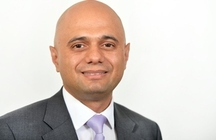Stephen Timms – 2016 Parliamentary Question to the Ministry of Defence
The below Parliamentary question was asked by Stephen Timms on 2016-04-12.
To ask the Secretary of State for Defence, what his policy is on supporting all new armed forces recruits who arrive without A* to C passes in GCSE English and mathematics to gain such qualifications; and if he will make a statement.
Mark Lancaster
The Ministry of Defence does not make financial provision to improve the Functional Skills (FS) of recruits before they are selected to join the UK Armed Forces.
For those who join the UK Armed Forces, there are clearly identified routes to ensure acceptable levels of FS. Over 95% of all recruits, no matter what their age or prior qualifications, enrol in an Apprenticeship Programme each year. Apprenticeships ensure that Service personnel (SP) will gain level 2 in literacy and numeracy – which is the equivalent to GCSE level. The Armed Forces also offer courses in a wide range of skills, such as engineering, information and communications technology (ICT), construction, driving, and animal care.
All recruits aged under 18 receive key skills education in literacy and numeracy, should they need it, and all are enrolled onto apprenticeships. The Armed Forces remain the UK’s largest apprenticeship provider, equipping young people with valuable and transferable skills for life. Ofsted regularly inspects our care of newly joined young recruits, and we are very proud of the standards we achieve.
Since September 2012, Defence has adopted FS qualifications (FS (English) and FS (Mathematics)) as the accredited measures of literacy and numeracy skills for all SP accessing in-Service literacy and numeracy provision. Defence FS provision will be (in most cases) a blend of in-house and external provision. FS provision and qualifications have been available and publicly funded in England since September 2010, with the single Services funding the following elements:
Specialist manpower. Sufficient in-house specialist practitioners to meet the FS requirements that are not met from external or Skills Funding Agency and Education Funding Agency funded providers and, co-ordinate the delivery of that provision across their Service.
FS staff training. Training for in-house specialist practitioners and support staff to meet the required professional standards, where this is not externally funded.
Trainee costs. All direct and indirect costs incurred by Initial Training Establishments, where training has to be extended to cover FS provision to meet the minimum FS Entry Level 3 standard, by the start of Phase 2 training.
FS resources. FS support materials, essential ICT, audio-visual equipment and associated consumables, and any other essential resource costs.


